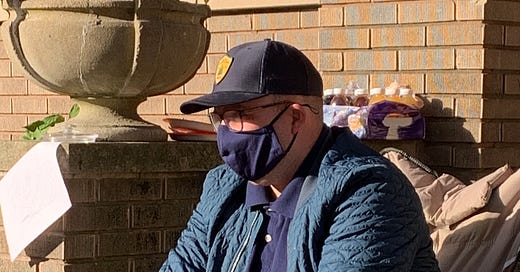034 - How listening taught us about COVID and the church.
Welcome back. (Or welcome).
“Tell me about what’s hard right now.”
It’s a powerful invitation.
Particularly when the person asking waits for an answer. And doesn’t interrupt with examples of their own. And doesn’t minimize the difficulty. And doesn’t offer solutions. And doesn’t offer explanations. And isn’t going to use the information to create traps.
The ensuing conversation may include suggestions, when requested. But before that, the conversation will be most helpful when it invites additional explanation of what’s hard and why, when it leaves room for tears, when it avoids conclusions.
+++
In early 2022, the consulting group I work with, Arbor Research Group, worked with ChurchSalary to ask pastors and church leaders about their experiences during the pandemic. A goal of the project was to learn about the financial impact on churches, to learn about changes in jobs. And the goal was to hear from churches often not included in surveys.
We heard from more than 1000 leaders in the survey, and then followed up with focus groups and interviews and more.
This week, the results of that work are being released. There’s a 111-page white paper, a podcast series, and a series of articles coming out in Christianity Today.
Our research identified nine themes or storylines in the responses.
Pandemic challenges and battles, especially the loss of presence, inflicted deep and lasting wounds on pastoral leaders.
To survive COVID-19, leaders were forced to adapt at a relentless and unpredictable pace.
The pandemic revealed spiritual immaturity, simmering polarization, and unexpected resiliency.
Why did some faithful congregations shrink in size and giving, while others witnessed explosive growth?
The pandemic greatly accelerated the adoption of and reliance on technology among churches.
Pandemic disruptions spurred many churches to minister outside the walls of the church.
Lasting damage was inflicted not by restrictions imposed from outside the church but by politicized conflicts inside each congregation.
The pandemic accelerated retirements, caused resignations, and created leadership crises.
Stories from the pandemic remind us that hope abounds even in the most difficult circumstances.
You can listen to the podcast or read the report (or both) to explore each of these themes. (And you’ll hear me in some of the episodes).
But here’s what’s compelling to me.
We wouldn’t have learned all this if we hadn’t asked. And if there hadn’t been a safe place to answer.
As we say in the second podcast episode, there were tears in every one of the focus groups as church leaders realized that their experiences mattered, that they could talk about how hard things had been.
If you would like a deeper dive into the lingering effects of COVID on churches, I invite you to follow the links. (podcast) We know that something happened, but we’re only beginning to understand what happened. And for most of us, our tendency is to move on without reflecting on how we’re still affected.
Our research, and the ongoing conversations I have with people, tell me that we’re still affected. The grief that we talk about here all the time often has the pandemic disruptions in the background.
Acknowledging, and then talking about, what happened and what we learned may help us heal.
+++
See you next week.
Jon





